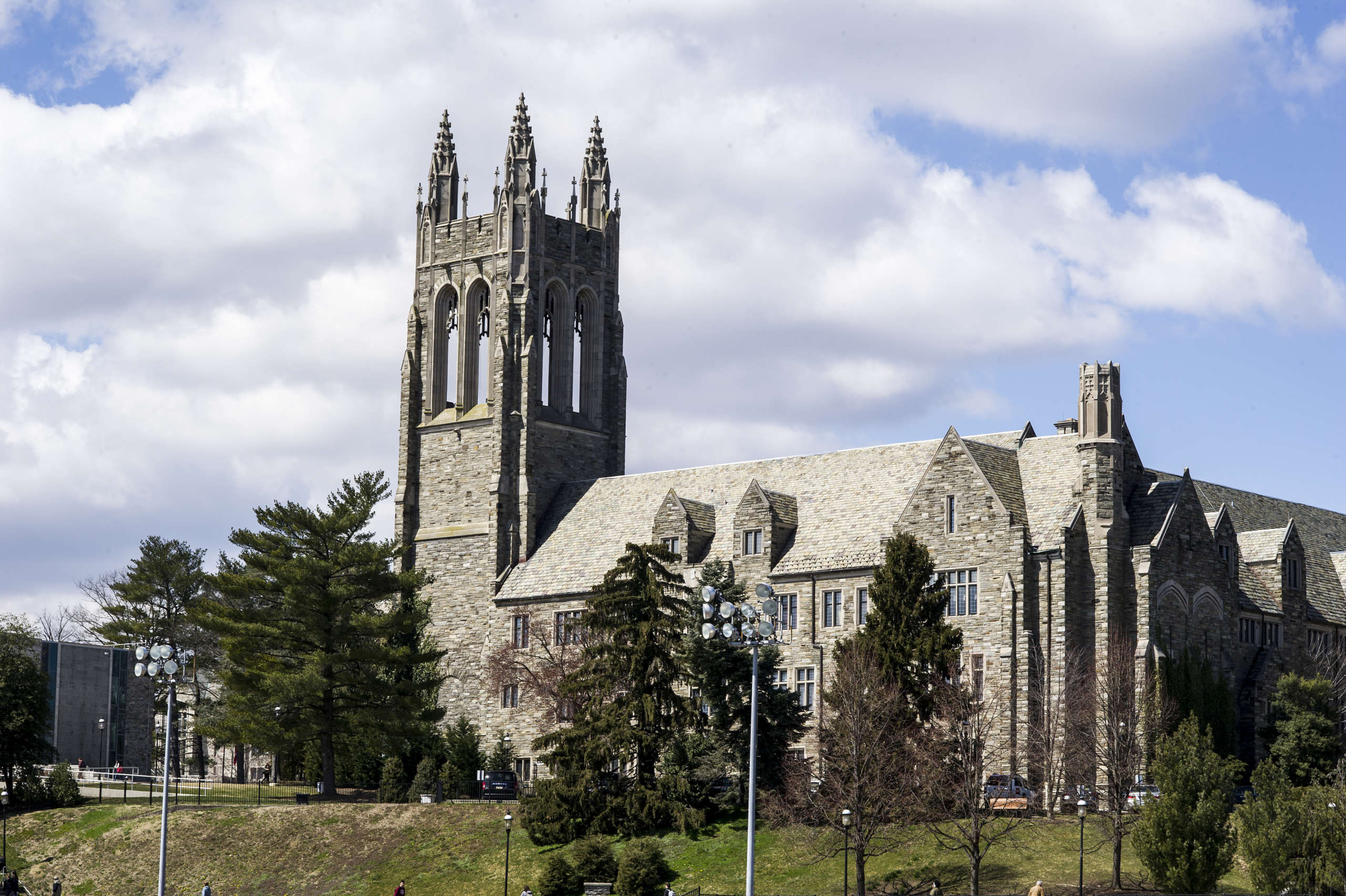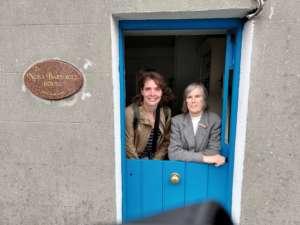When Kersti Tarien Powell, D.Phil., an assistant professor in the English department at Saint Joseph’s University, first proposed a minor in Irish Studies back in the fall, some people wondered aloud: Don’t we already have one?
The answer at the time was no, but, she says, there was broad agreement: “Of course we should have Irish Studies.”
Powell formally submitted her proposal in January. Then, she says, it went to different governing bodies at the Catholic university on City Line, including the College of Arts and Sciences and the University Council. She got the go-ahead in February. “It was approved at every stage,” she says. “So that was really nice.”
Now comes the tricky part.
Under normal circumstances, Powell explains, a student would express an interest in adding or changing a major or a minor and fill out and sign a paper form. But these are not normal times. As with most universities and colleges, the coronavirus pandemic has forced changes in Saint Joe’s academic way of life.
“Since classes went online in March, in a couple of weeks, the university had to develop new means to deal with students who want to sign up for majors or change their major or sign up for new minors,” Powell says. “So now we have an online portal where they can do that.” As soon as the portal went live, the first couple of students signed up for the Irish Studies minor. “I was able to approve them and that was very exciting. We were literally starting to recruit students as the pandemic hit. It was an amazing thing to see happening.”
Powell, originally from Estonia, has long nurtured a fascination with Irish literature. “Estonia is one of the three Baltic states, the one that’s closest to Finland,” she says. “I did my doctorate at Oxford, and my master’s thesis was already on Samuel Beckett. I was really interested in Beckett’s novels, and my focus was on his humor, black humor, and I actually thought about doing my doctoral dissertation on Beckett. Then, I changed my mind and decided to move from mid-20th century to late 20th century, so my doctoral dissertation was on (contemporary Irish novelist and short-story writer) John Banville, actually.”
Powell teaches classes in 21st century Irish literature at Saint Joseph’s. She includes recent novels—for example, Mike McCormack’s “Solar Bones” (published in 2016). McCormack was Heimbold Chair in Villanova University’s Irish Studies department, and he came to Saint Joe’s to give a reading and meet her students.
“That was a really exciting event for students,” Powell recalls. “It’s probably one of the things that prompted me to think, well, we should have an Irish Studies program here.”
Another sign of interest in a prospective Irish Studies minor, she says, was that, “after taking my 21st Century Irish Literature class, I had several students who wanted to work with me to do even more in-depth research. We have a summer scholars program at SJU. Students have to apply for it, and it’s a pretty rigorous application process. But if they’re selected, they get a stipend to conduct research, with faculty supervision.”
“I think a lot of students are interested in Irish Studies, especially in this area. So it’s really a great sign.”
In some other ways, the groundwork for interest in Irish Studies has been well established.
Start with SJU’s origins. The university’s most famous landmark is 93-year-old Barbelin Hall, build by prominent Irish-American John McShain. “That’s kind of our symbolic tie to Ireland and the Irish-American community.”
But more than that, several Saint Joe’s faculty members are interested in Irish Studies. Case in point: Richard Haslam, Ph.D., an associate professor in the English Department. “He’s from Northern Ireland,” Powell says.
“In the fall, he’s going to be teaching a course in the Northern Ireland Troubles. So with me, we have two professors whose training and research lie in the field of Irish Studies. There are several others with developed teaching interest in different areas of Irish literature, and we also have professors from our political science department, theology, music, theater and film. I’m actively looking for more professors to join us and offer courses that would count toward the Irish Studies minor. We’re very much hoping to grow.”
This year, Powell is also directing a senior thesis project on contemporary Irish literature, as part of a year-long research project. .
The university also offers vibrant study abroad programs in Cork and Galway.
Coursework for the minor is still being worked out, but given the already fertile academic ground, there’s plenty of room for growth.
Erin Fenzel, a Washington, D.C., native of Irish ancestry, is a sophomore who has signed up for the minor. Her major is in international relations.
“I am in Dr. Powell’s British and Irish Literature course, Fenzel says. “She talked about it (the minor), saying that she was hoping to establish it, and that it might not happen. But if it did, if you were interested, that class would count. I thought it sounded interesting, but I didn’t think much about it. Then she reached out to me because I was an international relations major, and I had some of the prerequisites already, like some classes that would fit into the minor. She said she thought it would go well with how interested I am in the class so far and my main area of focus. Then she had a writeup of the classes that would fit into the program in the coming semesters. There was a huge overlay in what I had to take for my major and also for an English minor, and it really is interesting to me. I quite like Dr. Powell, so it fit well with all of that.”
The British and Irish Literature class covers content relating to Irish immigration and the Irish diaspora. Learning more about that particular area of interest prompted her to sign up for the minor.
Powell is confident there will be more students signing up.
Because of the pandemic, it’s harder to get the word out about the new minor, she says. But all the same, “the fact that immediately when it was possible for students to sign up, I had a couple of applications right there in the system, that’s a great sign. I think a lot of students are interested in Irish Studies, especially in this area. So it’s really a great sign.”


